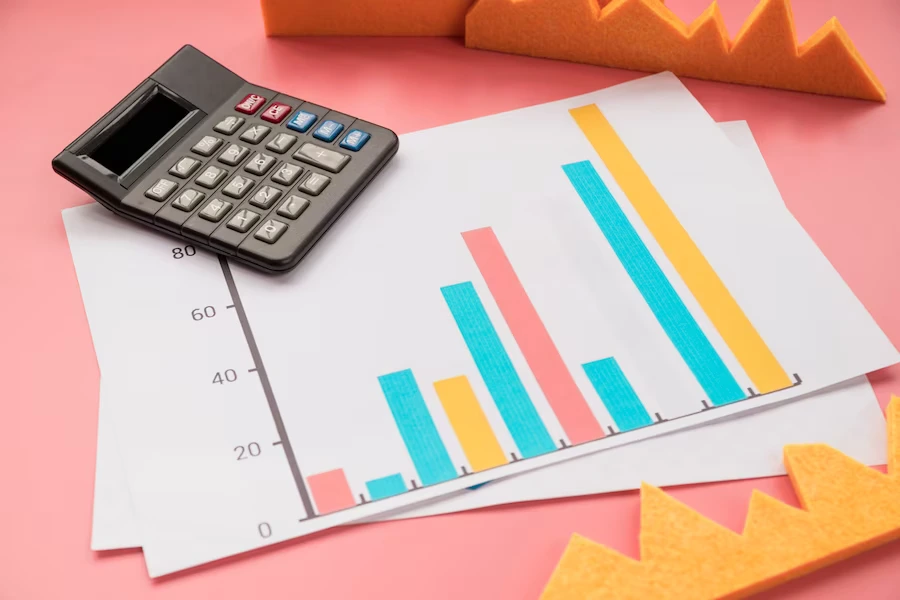British Columbia is a beautiful province in Canada that offers an excellent quality of life, with access to stunning natural landscapes, a vibrant culture, and a diverse economy. However, if you are considering moving to British Columbia or are already a resident, it’s important to understand the cost of living. In this guide, we’ll discuss the cost of living in British Columbia and provide tips on managing your expenses.
Understanding the Cost of Living
The cost of living in BC can vary depending on your lifestyle and location. Generally speaking, housing is one of the biggest expenses affecting your budget. Metro areas such as Vancouver and Victoria are known for having some of the highest housing prices in Canada, with average monthly rents ranging from $1,500–$2,000. Outside of these metro areas, housing prices and rent prices tend to be more affordable. Other costs to consider include transportation or the monthly transit pass, food, BC government taxes and utilities.
It’s also important to remember that the cost of living can change over time depending on factors such as economic climate and inflation. To ensure you stay within your budget, regularly tracking the rising cost of living and food prices can be helpful.
Cost of Living Statistics

Housing Costs: Average Rent and More
Here are the details about housing and utility costs in different areas:
A 1 bedroom apartment in the city center, with an area of 40m2 or 430ft2, costs $1235 per month, while a cheap one-bedroom apartment of the same size costs $1075.
If you’re looking for a larger space, a three-bedroom apartment in the city center such as Metro Vancouver with an area of 80m2 or 860ft2 costs $2533 per month, whereas a cheaper version can cost you $1959.
The utility bill for a single person, including electricity, heating, water, etc., costs $81.2, whereas, for a family, it costs $125 per month.
For internet plans with speeds of 50 Mbps and unlimited usage for one month, you need to pay $64.7.
If you plan to buy an apartment in the city center, you can expect to pay $7535 for every 1m2 or 10ft2, while a house in the suburbs can cost you $5772 per 1m2 or 10ft2.
To finance your housing requirements, you can apply for a mortgage loan with an interest rate of 5.62% for 20 years.
Transportation and Vehicle Costs
Transportation costs in British Columbia can be steep, especially in large cities.
Here are the details about transportation costs:
If you take local transport frequently, a single ticket will cost you $2.14. On the other hand, a monthly ticket or monthly pass for local transport will cost you $75.5.
A taxi for an 8 km or 5 mi ride will cost you around $15.5.
Those who own a car must spend $1.48 for 1L or 0.26 gallons of gas. There’s also car insurance.
Food Costs and Consumer Price Index
The cost of food and daily essentials can also add up quickly in British Columbia.
Here are the details about the current cost of food and grocery prices:
A litre or quart of milk costs $1.97.
A half-kilogram or 1.1-pound loaf of bread costs $2.23.
If you consider buying rice, a kilogram or 2.2-pound of rice costs $3.17.
A carton of 12 eggs costs around $3.43.
Cheese lovers must spend $12.5 for 1 kilogram or 2.2 pounds of cheese.
If you plan to buy 1 kilogram or 2.2 pounds of chicken breast, it will cost you $11.3.
A kilogram or 2.2 pounds of round steak costs $14.
Fruits such as apples, bananas, oranges, and tomatoes cost $3.3, $1.34, $3.18, and $3.67 per kilogram or 2.2 pounds, respectively.
One kilogram or 2.2 pounds of potatoes costs $2.44, whereas onions cost $2.38.
A litre or quart of water costs $1.16, while a 2-litre or 67.6 fluid ounces bottle of Coca-Cola or Pepsi costs $1.9.
Wine lovers need to spend $13.5 for a mid-priced 750ml wine bottle.
For those who prefer beer, a 0.5-litre or 16-fluid ounces bottle costs $2.41.
If you are a smoker, a pack of cigarettes costs $12.5.
For cold medicine that lasts for a week, you must spend $9.27.
A bottle of hair shampoo costs $4.29, and a pack of 4 toilet rolls costs $2.69.
A tube of toothpaste is priced at $1.19.
Other Living Expenses for a Single Person
Other living expenses contributing to British Columbia’s living costs include entertainment, healthcare, etc.
Here are the details about other living expenses:
If you want to stay fit and healthy, you need to spend $38.5 for a gym membership that lasts for a month.
A cinema ticket for one person costs $11.3.
If you need to visit a doctor, it will cost you around $79.
A simple haircut costs $14.4.
Fashion-conscious individuals must spend $51.2 for branded jeans, whereas a pair of branded sneakers can cost around $81.7.
For those with children, daycare or monthly preschool costs $920.
If you plan to enroll your child in an international primary school, get ready to pay $10724 for an entire year.
Average Salaries
According to the latest data, the average salary in British Columbia, Canada, is $68,104 per year, down to $34.93 per hour. If you are looking for entry-level positions, you can expect to earn around $42,744 per year, whereas experienced workers can make up to $152,243 per year.
Tips for Managing Your Expenses

Managing expenses is essential to maintain a healthy financial status, especially in a place like British Columbia, where the cost of living can be high.
Here are some tips to help you manage your expenses effectively:
Create a Budget: An excellent tool for keeping tabs on your cash flow is the budget. It’s a great tool for keeping track of your spending and figuring out where you can make cuts or put money away. To begin, tally up your regular monthly outlays for things like housing, food, and transportation. Next, include miscellaneous costs like food, recreation, and attire. The remaining amount can be put into savings or investments after all other costs have been deducted from income.
Reduce Your Housing Costs: Housing costs, such as rent or mortgage payments, can be a significant expense for many people. Consider downsizing to a smaller apartment or moving to a less expensive area. Alternatively, you could rent out a spare room to help offset the cost of rent or mortgage payments.
Save on Utilities: Save on your utility bills by reducing your consumption. Consider switching to a cheaper internet plan or bundling services to save on monthly bills. Reduce your water usage by taking shorter showers and turning off lights when not in use.
Use Coupons and Discount Codes: Always look for discounts and coupons before purchasing. You can find discount codes and coupons online or in local newspapers. Use them to save money on groceries, dining out, or other expenses.
Cook Your Meals: Eating out can be expensive, so consider cooking your meals at home. Meal prep in advance, and pack your lunch to take to work instead of buying it. This not only saves money but also allows you to eat healthier meals.
Avoid Impulse Buying: Avoid impulse buying by making a shopping list and sticking to it. Before making a purchase, ask yourself if it is something you really need or if it’s just a want. If it’s a want, wait a few days to think about it and decide if it’s worth the expense.
Plan: Planning can save you money on travel, entertainment, and other expenses. For example, book your flights and hotels in advance to get the best deals. Plan your meals for the week to avoid last-minute takeout orders, which can be expensive.
Use Cashback Rewards: Many credit cards and online shopping portals offer cashback rewards on purchases. Take advantage of these offers to save money on your purchases. However, pay off your credit card balance in full each month to avoid interest charges.
Negotiate Your Bills: Negotiate your bills, such as your cable or phone bills, to save money. Communicate with your service provider and ask for a reduced monthly rate if you can . if you can negotiate a lower monthly bill or a package deal. You can also go about and look for the greatest offer by shopping around and comparing costs.
Track Your Expenses: Keeping your expenses is crucial to managing them effectively. Spending may be monitored and reduced with the help of a budgeting app or a simple spreadsheet. You can use this to keep track of your expenditures and save money in the long run.
Conclusion
Managing monthly costs and expenses, excluding housing, can be challenging. However, following the above tips, you can effectively manage your money and maintain a healthy financial status. With a little effort and dedication, you can keep your finances in check and save more money on monthly expenses in the Vancouver area.
Hire Quick & Easy Moving services for a stress-free and budget-friendly move to British Columbia. They offer free and no-obligation costs and you can be assured that there are no hidden costs during the actual move. Give them a call today.

